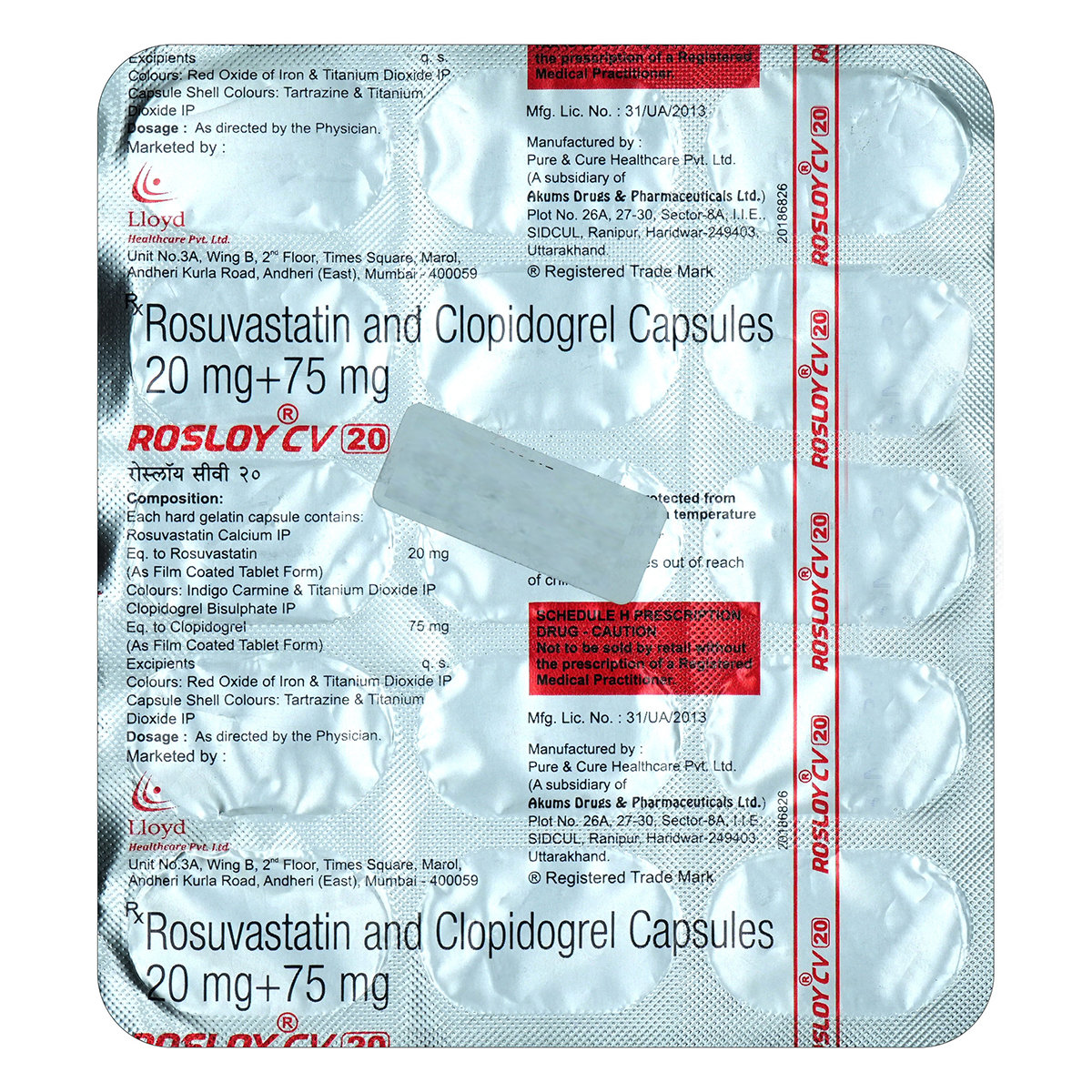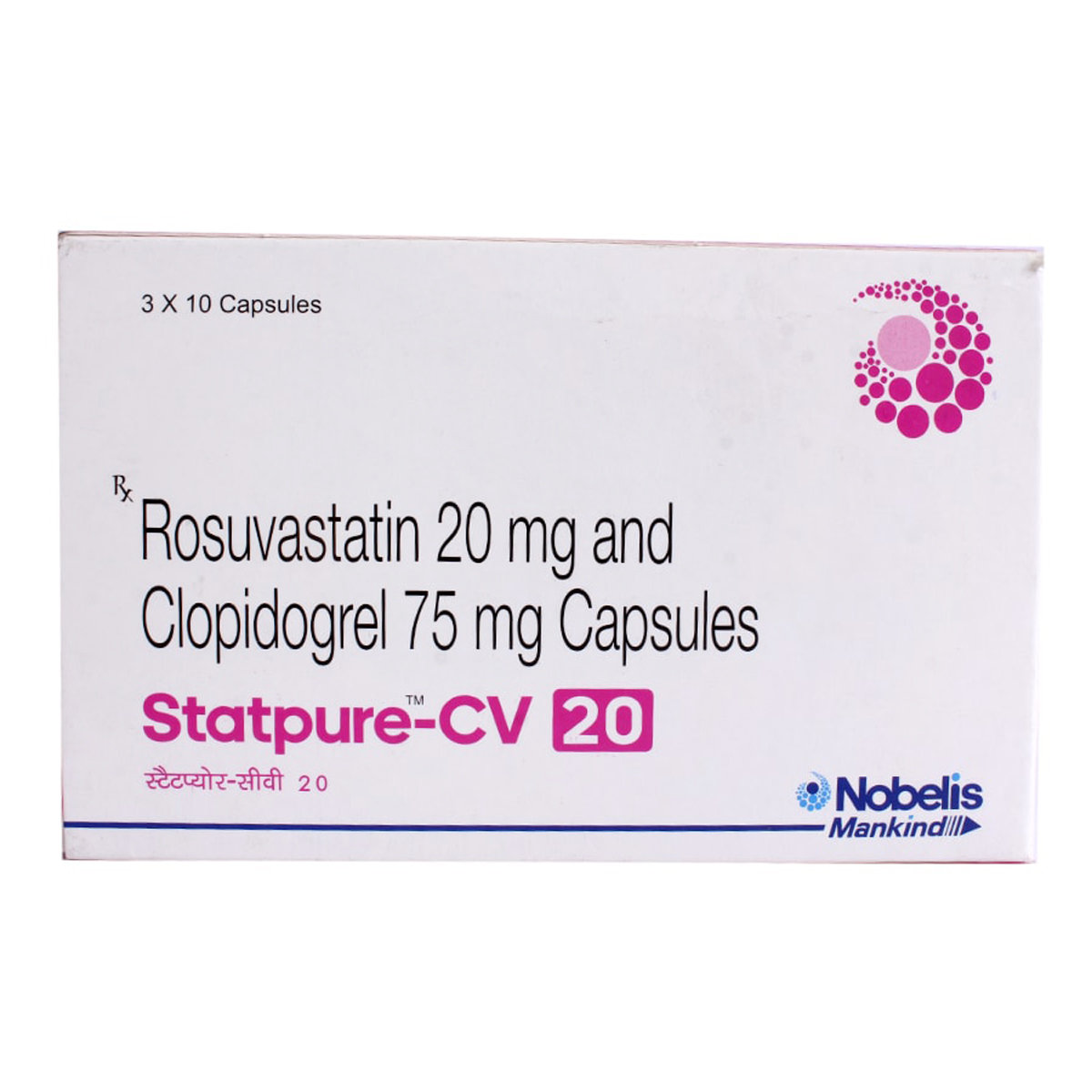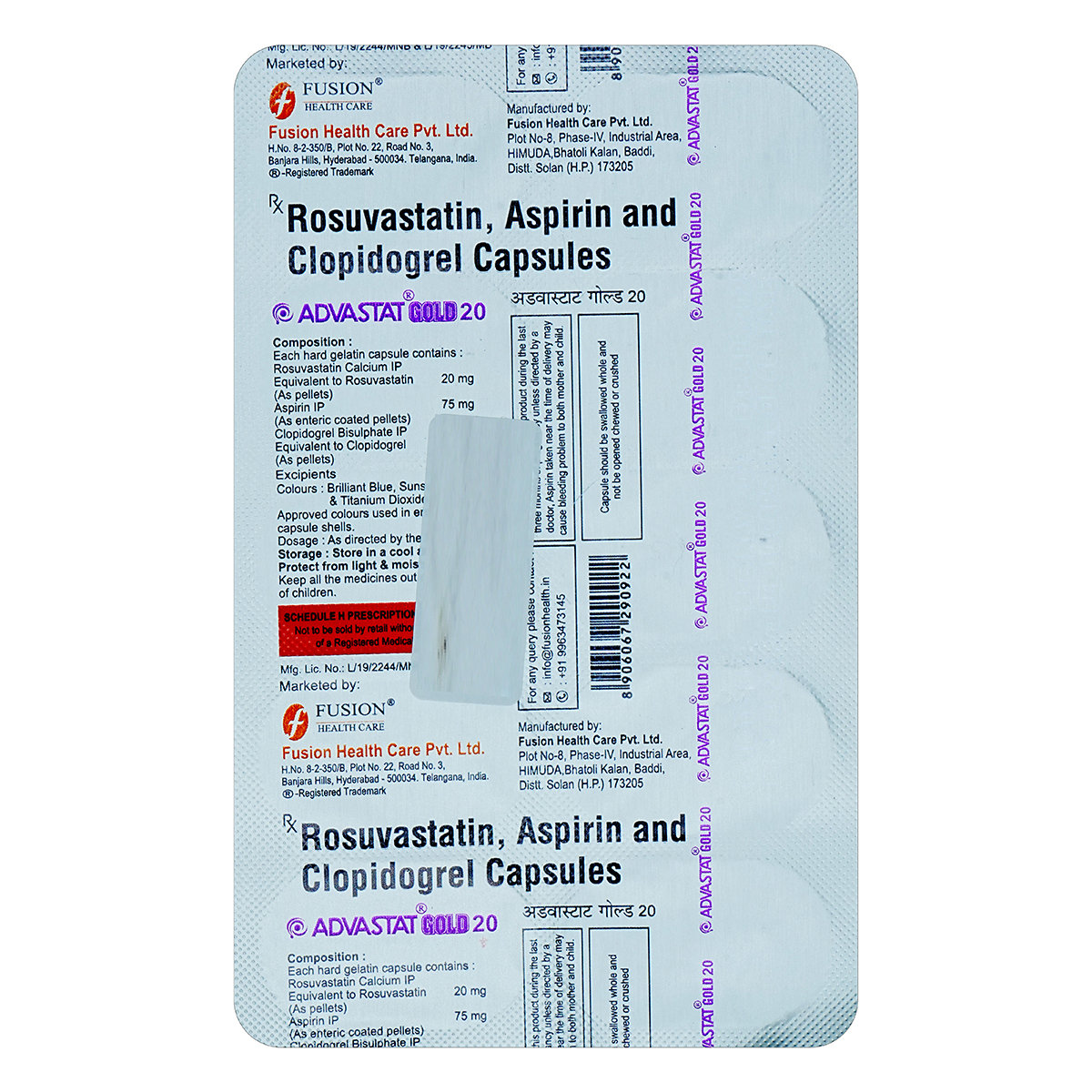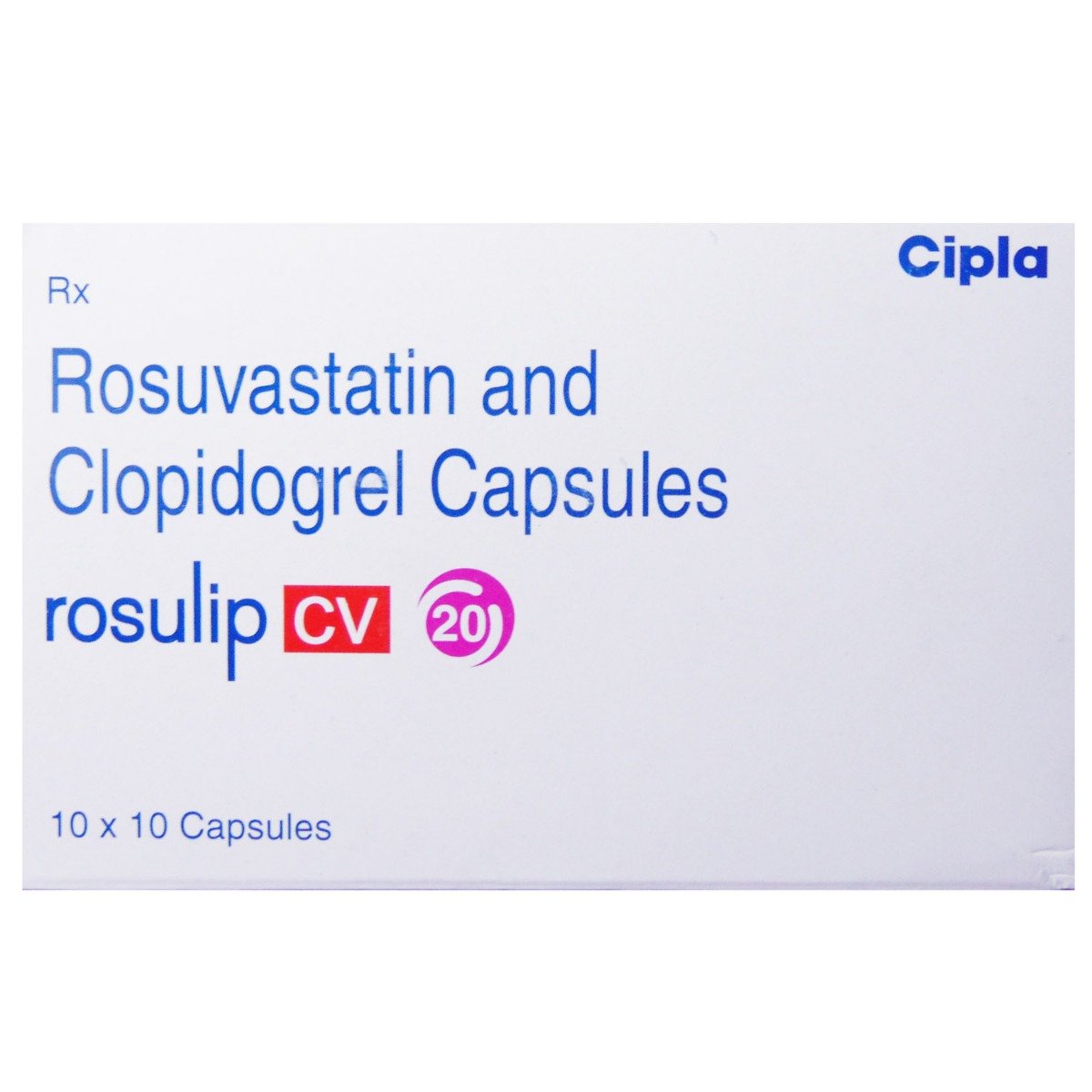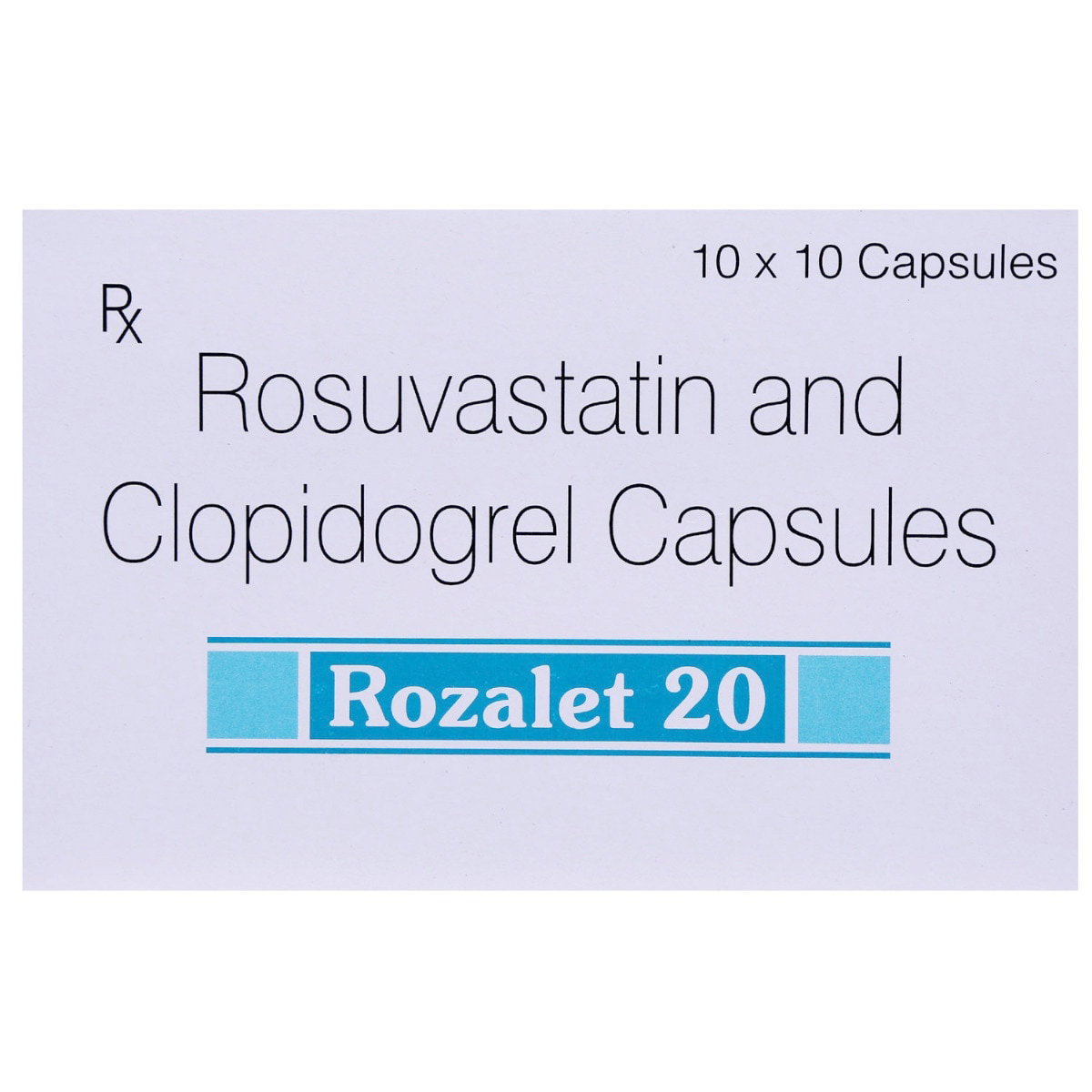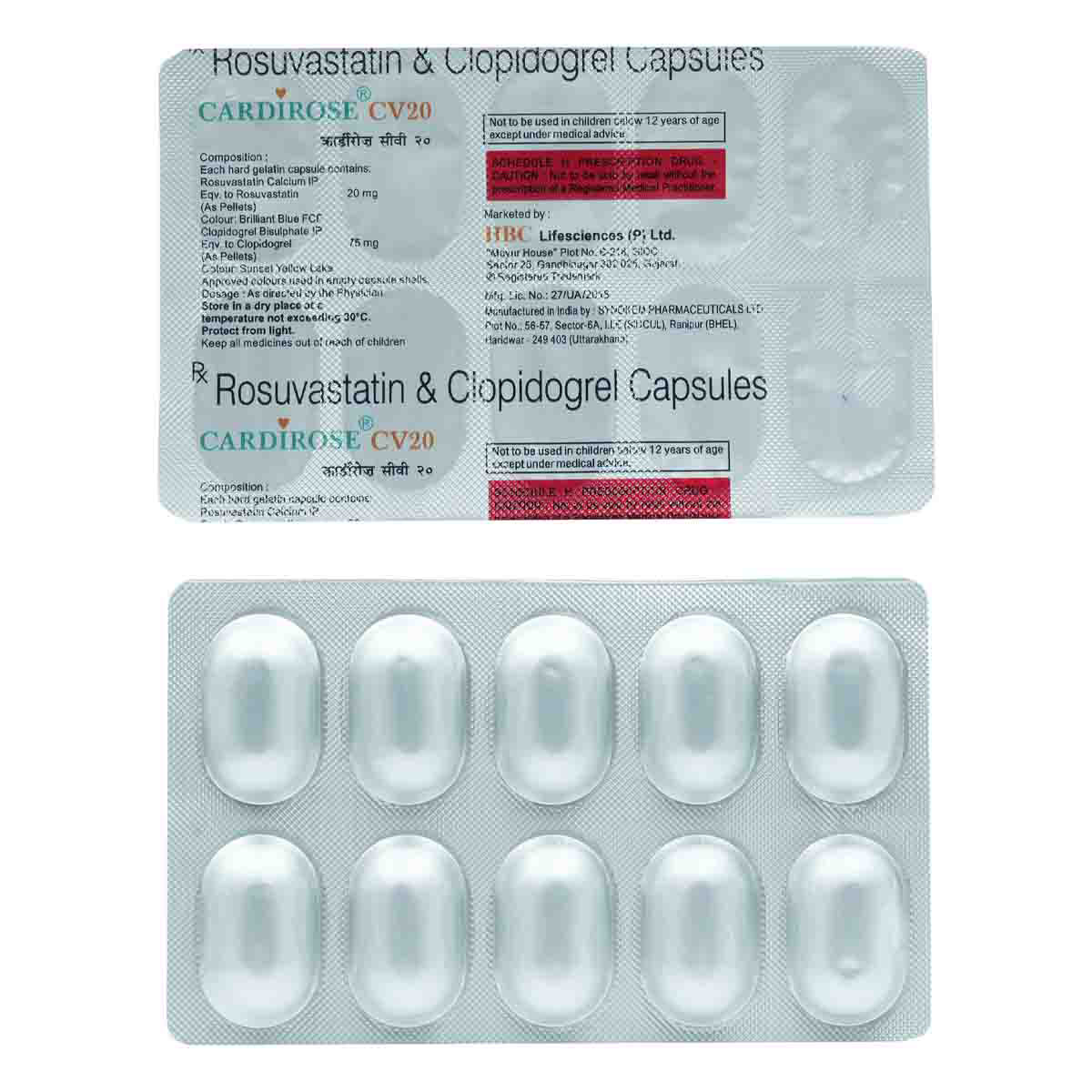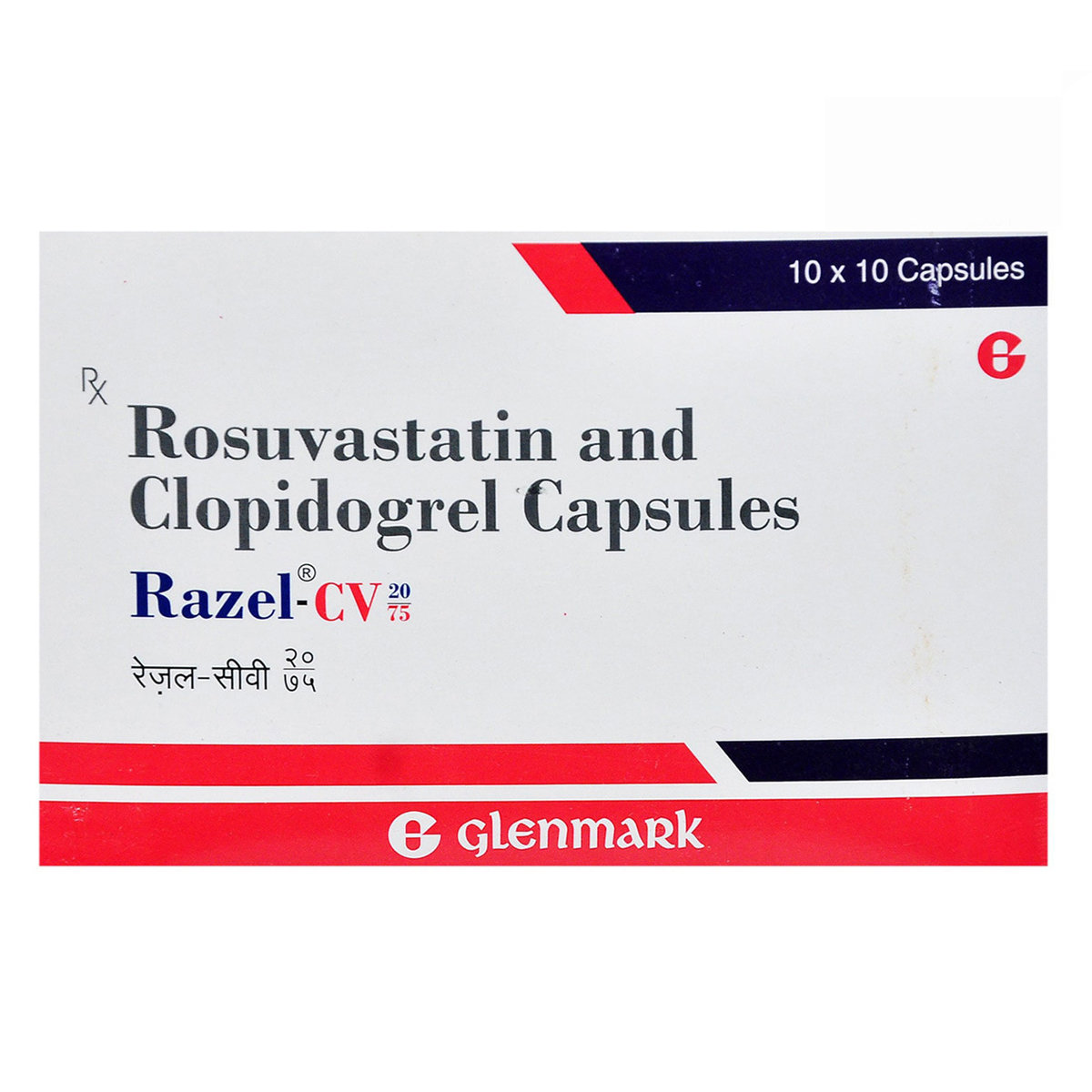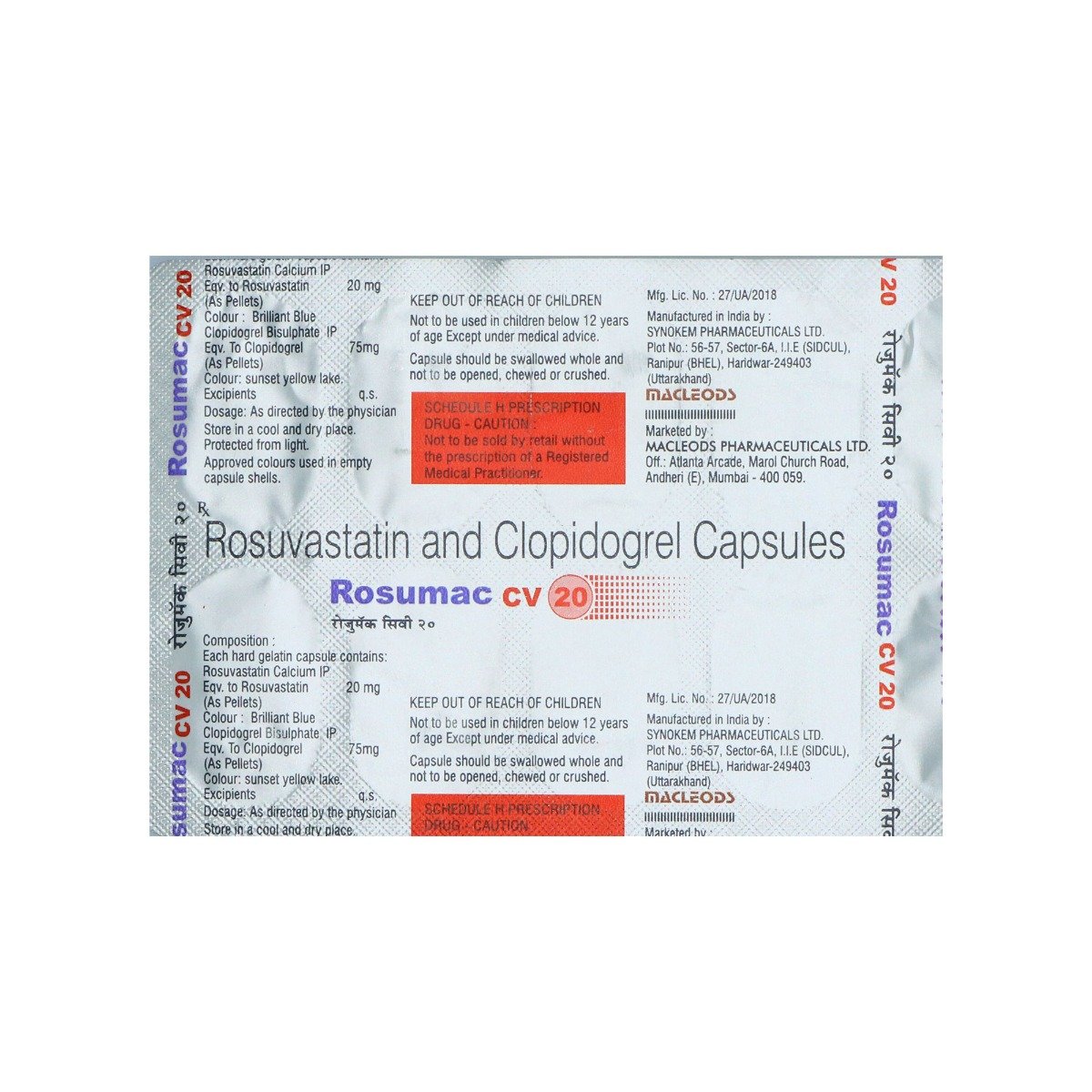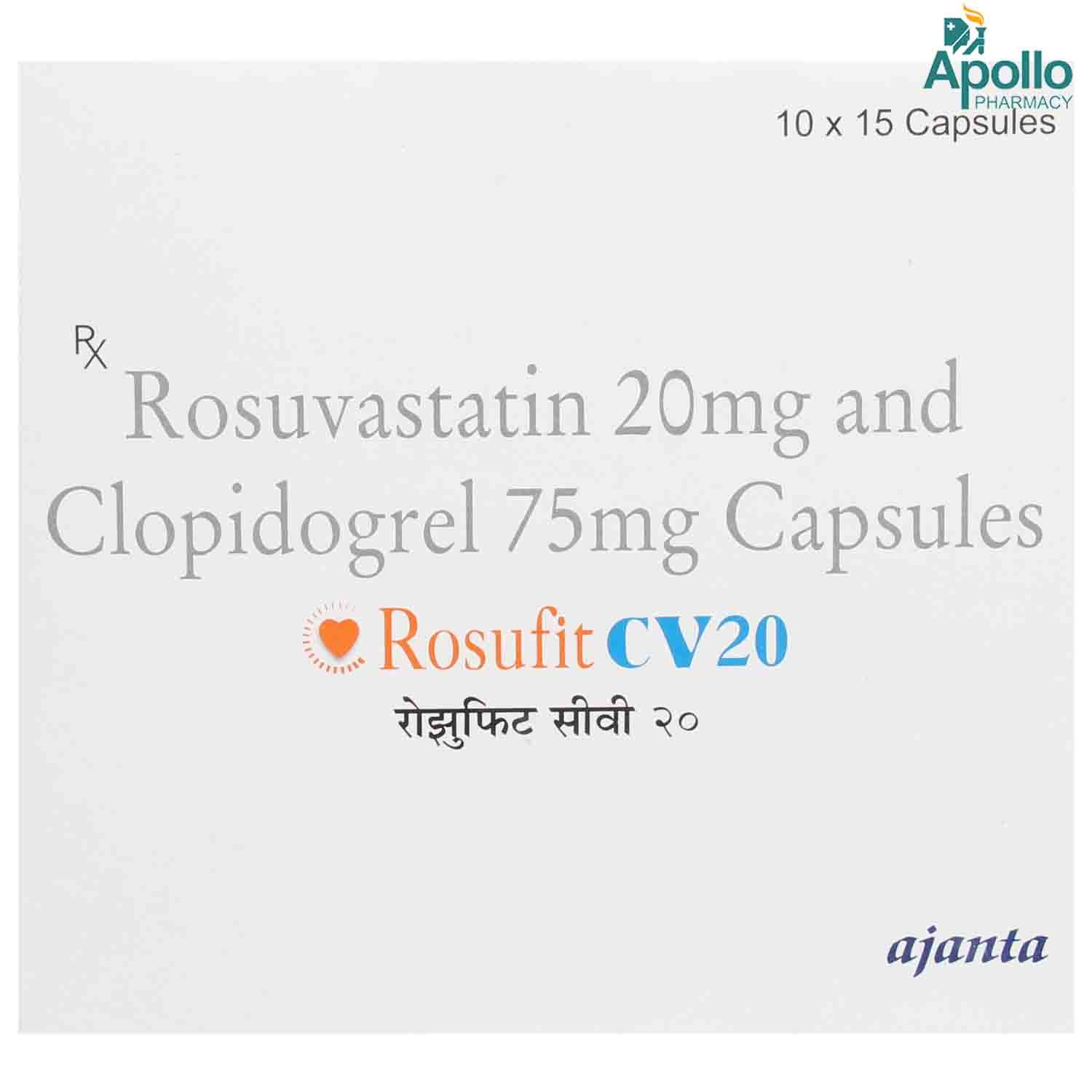Rostafine-CV Capsule 10's
MRP ₹374
(Inclusive of all Taxes)
₹56.1 Cashback (15%)
Provide Delivery Location
Online payment accepted
 Prescription drug
Prescription drugWhats That
Composition :
Manufacturer/Marketer :
Consume Type :
Return Policy :
About Rostafine-CV Capsule 10's
Rostafine-CV Capsule 10's is a combination drug composed of a blood-thinning agent and cholesterol-lowering agent, primarily used to prevent heart attack and stroke in the future. It lowers the raised level of cholesterol and fats (triglycerides) in our body. A heart attack is a condition in which your coronary arteries (blood vessel supplying blood and oxygen to the heart) becomes blocked due to build-up of fats (plaque) including cholesterol. These plaques narrow the arteries, leading to atherosclerosis and coronary artery disease, mainly for most heart attacks.
Rostafine-CV Capsule 10's is composed of two medicines, namely: Rosuvastatin and Clopidogrel. Rosuvastatin is a lipid-lowering medication that blocks the enzyme required to make cholesterol in the body. As a result, it lowers the bad cholesterol (low-density lipoproteins or LDL), triglycerides (TG) and increases the levels of good cholesterol (high-density lipoproteins or HDL). Clopidogrel is a blood thinner (anticoagulant) that collectively prevents a clot in the blood vessels. Together Rostafine-CV Capsule 10's reduces the increased levels of bad cholesterol (low-density lipoprotein and triglycerides) and prevents blood clots, thereby reducing and preventing the risk of heart attack, stroke and heart-related chest pain (angina).
Take Rostafine-CV Capsule 10's exactly as directed by your doctor. The dose and duration of Rostafine-CV Capsule 10's may differ depending on the reason why you're taking it and your responses to treatment. In some cases, you may experience headaches, ankle swelling due to fluid retention (oedema), slow heart rate, and nausea. Rostafine-CV Capsule 10's is known to cause dizziness, so driving should be avoided. Most of these side effects of Rostafine-CV Capsule 10's do not require medical attention and gradually resolve over time. However, if the side effects are persistent, reach out to your doctor.
Try not to stop taking Rostafine-CV Capsule 10's of your own. Suddenly stopping Rostafine-CV Capsule 10's may worsen your condition and increase your risk of a future heart attack. Inform your doctor know if you are allergic to rosuvastatin, clopidogrel, or have any active liver disease (liver enzymes abnormalities), active bleeding issues (like peptic ulcer, brain haemorrhage), or muscle problem (myopathy, rhabdomyolysis). The patient should inform the doctor that they are taking Rostafine-CV Capsule 10's before any surgery is scheduled or any new medicine is taken. Rosuvastatin present in Rostafine-CV Capsule 10's is a pregnancy category X drug, so it should not be given to pregnant women. It may cause harm to the fetus if administered to pregnant or breastfeeding women.
Uses of Rostafine-CV Capsule 10's
Directions for Use
Key Benefits
Rosuvastatin is a lipid-lowering medication that blocks the enzyme required to make cholesterol in the body. As a result, it lowers the bad cholesterol (low-density lipoproteins or LDL), triglycerides (TG) and increases the levels of good cholesterol (high-density lipoproteins or HDL). Clopidogrel is a blood thinner (anticoagulant) that collectively prevents a clot in the blood vessels. Together Rostafine-CV Capsule 10's reduces the increased levels of bad cholesterol (low-density lipoprotein and triglycerides) and prevents blood clots, thereby reducing the risk of heart attack, stroke, and heart-related chest pain (angina).
Storage
Drug Warnings
Tell your doctor if you are allergic to rosuvastatin, clopidogrel, or any of its ingredients. If you have any active liver disease, active bleeding issues (like peptic ulcers, brain haemorrhage), pregnant, or plan to become pregnant or breastfeeding, do not take Rostafine-CV Capsule 10's until prescribed. The patient should inform the doctor that they are taking Rostafine-CV Capsule 10's before any surgery is scheduled or any new medicine is taken. Rosuvastatin present in Rostafine-CV Capsule 10's is a pregnancy category X drug, so it is contraindicated in pregnant women. As it may cause harm to the fetus if administered to pregnant women. The risk of muscle problems might increase if Rostafine-CV Capsule 10's is taken with an antibiotic (clarithromycin), anti-HIV drugs (ritonavir, lopinavir, darunavir, atazanavir, indinavir) and antifungal (itraconazole). Coadministration with anticoagulants like warfarin may cause gastric bleeding and other bleeding problems. So, if you are using any blood-thinning agents, let your doctor know about this. Rostafine-CV Capsule 10's contains rosuvastatin, which can cause muscle problems like myopathy and rhabdomyolysis. Patients with active liver disease should use the Rostafine-CV Capsule 10's with caution. Safety and effectiveness of Rostafine-CV Capsule 10's have not been established, so its use should be avoided in paediatric patients less than ten years of age. Discontinuation of Rostafine-CV Capsule 10's may lead to cardiovascular events like heart attack, stroke, and angina (heart-related chest pain). Hence, you should consult a doctor before stopping the dose of Rostafine-CV Capsule 10's.
Diet & Lifestyle Advise
- A low cholesterol diet and a regular exercise regime effectively complement treatment with Rostafine-CV Capsule 10's.
- Stick to a freshly prepared home-cooked meal and avoid processed, packed foods that contain hidden sugar and extra calories.
- Try to replace most of your saturated fats with unsaturated fats to reduce total cholesterol and LDL cholesterol (bad cholesterol) quickly.
- Foods like avocados, olive oil, fatty fish, and nuts contain too many heart-healthy unsaturated fats, so eating them regularly is beneficial.
- Include a diet enriched in fats like fish oils, polyunsaturated oils, and omega-3 fatty acids, which are good for heart health.
- Quit smoking and avoid excessive intake of alcohol.
Side Effects of Rostafine-CV Capsule 10's
- Stomach bleeding
- Gastrointestinal bleeding
- Nose bleeding
- Rash
- Diarrhoea
- Stomach ulcer
- Muscle disease (myopathy, rhabdomyolysis)
- Abdominal pain
Habit Forming
Therapeutic Class
All Substitutes & Brand Comparisons
RX
Roseday CV 20 mg Capsule 10's
USV Pvt Ltd
₹86
(₹7.74 per unit)
79% CHEAPERRX
Rosuless-C 20 Capsule 10's
Corona Remedies Pvt Ltd
₹178
(₹16.02 per unit)
57% CHEAPERRX
Crevast CV 20 Capsule 10's
Eris Life Sciences Ltd
₹183
(₹16.47 per unit)
55% CHEAPER
FAQs
Drug-Drug Interactions Checker List
- ERYTHROMYCIN
- CLARITHROMYCIN
- RITONAVIR
- LOPINAVIR
- DARUNAVIR
- ATAZANAVIR
- INDINAVIR
- ITRACONAZOLE
- WARFARIN
- HEPARIN
- COLCHICINE
- DIGOXIN
- CYCLOSPORINE
Disease/Condition Glossary
Heart attack: Heart attack is when your coronary arteries (blood vessels supplying blood and oxygen to the heart) become blocked due to the build-up of fats (plaque), including cholesterol. These plaques narrow the arteries, leading to atherosclerosis and coronary artery disease, mainly for most heart attacks.
Stroke: Stroke occurs when the blood and oxygen supply to the brain is blocked or minimized. As a result, the brain tissue is deprived of getting oxygen and nutrients. After a few minutes, brain cells (neurons) start to die. A stroke is a medical emergency; immediate treatment is required; else can cause brain damage, coma or even death.
Atherosclerosis: Atherosclerosis occurs when fats, cholesterol, and other substances known as plaque deposit on your artery walls that restrict blood flow. This plaque formation triggers blood clots, narrows the artery's size, and hardens it. This, in turn, can lead to various heart complications like atherosclerosis, heart attack, heart-related chest pain (angina), and stroke. However, it can also affect the body's arteries apart from the heart.

Have a query?
Alcohol
Safe if prescribed
Rostafine-CV Capsule 10's should not be taken with alcohol as it may worsen your liver condition with increased secretion of liver enzymes like transaminase. Keep your doctor informed if you drink alcohol.
Pregnancy
Consult your doctor
Rostafine-CV Capsule 10's contains Rosuvastatin, which is a pregnancy category X medicine. It may cause harm to both the pregnant mother and the fetus. Hence, it is not recommended for pregnant women and those who are planning for a pregnancy. Your doctor might prescribe you only in an extreme case.
Breast Feeding
Consult your doctor
Take Rostafine-CV Capsule 10's only when prescribed, it is known to pass on in a limited quantity via breast milk to the child.
Driving
Safe if prescribed
Drive with caution, Rostafine-CV Capsule 10's usually causes blurry vision and may affect driving ability.
Liver
Consult your doctor
Rostafine-CV Capsule 10's to be taken with caution, especially if you have a history of liver diseases/conditions. The dose may have to be adjusted by your doctor.
Kidney
Consult your doctor
Rostafine-CV Capsule 10's to be taken with caution, especially if you have a history of kidney diseases/conditions. The dose may have to be adjusted by your doctor.
Children
Safe if prescribed
Rostafine-CV Capsule 10's is not recommended for children below the age of 10 years. The safety and effectiveness of Rostafine-CV Capsule 10's have not been established in children due to limited testing of Rostafine-CV Capsule 10's on children by competent authorities worldwide.




